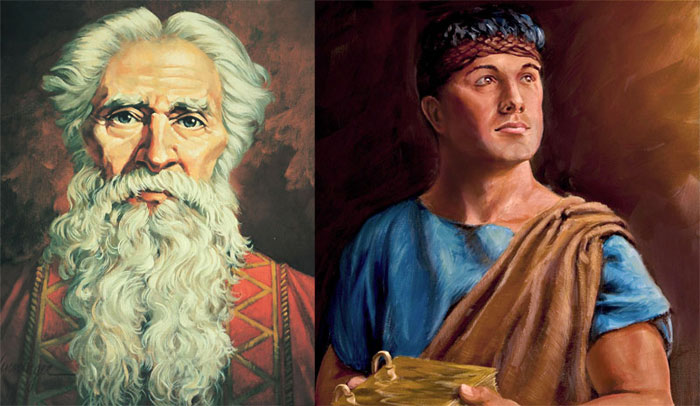To accompany your Come Follow Me study for September 5-11
In addition to reading the suggested chapters, you may enjoy
- Reading the related material from the Institute student manual at https://www.churchofjesuschrist.org/study/manual/old-testament-student-manual-kings-malachi/chapter-13?lang=eng.
- Reading these same chapters in a modern language translation, such as the New International Version or the New Living Bible. You can find these and many other versions available for free online at https://www.biblegateway.com/plus/?test=b.
- Watching the following video: Come Follow Me 2022 LDS (Sept 5-11) Isaiah 1-12 | Isaiah Unlocked at https://www.youtube.com/watch?v=gGQ6WF52b7k
- Watching at least the first 4 minutes and 50 seconds of the video “Overview: Isaiah 1-39 at https://www.youtube.com/watch?v=d0A6Uchb1F8. (This is the part which deals with Isaiah 1-12.)
If you would enjoy seeing a Kahoot game related to this material which you could use for your own amusement or with your family or class, click here:
https://create.kahoot.it/share/isaiah-1-12/d8688a90-1c5e-4229-ac80-63ff8e6ac4d2. (To use it with a group, after clicking on this link, you will need to log into Kahoot, creating a free account if you have not done so previously, then click on the blue “Start” button.)
Points to Ponder in Isaiah 1-12
1. Why do so many people shudder at the thought of having to study Isaiah?

2. How many passages can you find in the Book of Mormon which urge us to study Isaiah?

3. Why do you suppose the Lord and His prophets have found Isaiah’s writings more valuable than many of us have?
4. What helps are available to us to make Isaiah more intelligible and enjoyable?

5. List three passages from these chapters which could help a reader grow in faith in God’s existence, His goodness, or in the truthfulness of the restored gospel of Jesus Christ.
6. List three passages from these chapters which could teach, motivate, or inspire a reader to live a better life.
7. List at least one prophetic passage from these chapters which was fulfilled in Isaiah’s own time.
8. List three prophetic passages from these chapters which dealt with Christ’s mortal ministry.
9. List three prophetic passages from these chapters which relate to the latter days.
TREASURE HUNT. LIST THE PASSAGE CORRESPONDING TO EACH OF THE FOLLOWING. Hint: They are found in sequential order in Isaiah 1-12.
10. In one sense humans are inferior to animals.

11. Going through the motions of church activity is worse than useless unless one’s heart is right.

12. Baptism is essential to salvation.
13. It is false doctrine to teach that sin is comparable to pounding nails into a board, that repentance is like pulling them out, with the nail gone but the hole remaining.

14. Should be cross referenced to D&C 64:34.
15. It is wrong to accept bribes.
16. The source for a line from one of our favorite hymns.
17. Military technology will eventually be converted to peaceful uses.
18. As quoted in the Book of Mormon, constitutes evidence for the authenticity of that book.
19. The Lord is appalled that some would not only engage in homosexual activity but publicly boast of it.
20. Those who overemphasize fine clothing and jewelry will one day regret it.

21. A passage sometimes misapplied to try to prove that plural marriage will once again be practiced sometime in the future.
22. Someday every home and every meeting in Zion will be blessed with the visible glory and protection of the Lord.
23. Could be taken out of context to try to show that those who live in single family homes with space between them are better off than those who live in townhouses, condominiums, or apartments with adjoining neighbors.
24. Could be taken out of context to argue against the seminary program as offered in most of the world.

25. Could be used as an argument in favor of participation in seminary, institute, and/or the Come Follow Me program.
26. A warning against pseudointellectualism.
27. Isaiah may have foreseen the airplane.
28. Isaiah saw God.
29. Forgiveness comes as we willingly endure tribulation.
30. Isaiah set the example by volunteering for religious service rather than wait until he was assigned.
31. A confusing passage rendered clearer by Matthew 13, Acts 28, and the Joseph Smith Translation.
32. The most important aspect of the gathering of Israel is their latter-day conversion to the gospel, not their geographical residence.
Random Additional Questions to Consider
33. What common examples occur to you of people calling “evil good and good evil; that put darkness for light, and light for darkness; that put bitter for sweet, and sweet for bitter” as Isaiah said would be the case? (5:20)
34. What arguments could be used by those who assert that 7:14 does not refer to Jesus Christ? What arguments are used by those who say it does?
35. How reasonable or unreasonable was Ahaz’ fear of the armies of Israel and Syria? (Chapters 7-8). Why was the Lord so unhappy with him about it?
36. What punctuation change in 9:6, supported in fact by some translations, would make this passage even clearer?
37. Why does 3:12 foretell that “women rule over them,” as though that would be some kind of tragedy? What’s wrong with women in leadership positions in the government?
Possible Answers to Points to Ponder in Isaiah 1-12
1. Why do so many people shudder at the thought of having to study Isaiah?
Isaiah’s writings are sometimes admittedly difficult to understand. Nephi said in 2 Nephi 25:1 that they were even hard for his people, and they lived 2600 years closer to Isaiah’s time and could speak the same language as Isaiah! Isaiah’s writings have come to us in translated form. The English version used by the Church (the King James Version) further complicates the matter by using old English. Furthermore, Isaiah often spoke symbolically, referred to people and places quite unfamiliar to us, and sometimes jumped around from topic to topic. I was once reassured in an Old Testament class taught by Dr. Sidney B. Sperry at BYU (who could read it in the original Hebrew) to hear him say, “I have learned there are parts of Isaiah that I just have to live with and not worry about what it means.”
2. How many passages can you find in the Book of Mormon which urge us to study Isaiah?
They include:
- 1 Nephi 15:20
- 1 Nephi 19:23
- 1 Nephi 20-21, 2 Nephi 12-24, and Mosiah 14, which quote entire chapters from Isaiah.
- 2 Nephi 6:4-5
- 2 Nephi 11:2
- 3 Nephi 20:11
- 3 Nephi 23:1
- Mormon 8:23
3. Why do you suppose the Lord and His prophets have found Isaiah’s writings more valuable than many of us have?
Isaiah saw our day, as well as the Savior’s mortal ministry, and wrote concerning both. He also was an eyewitness of God’s existence and left us his written testimony of the same. And he had a beautiful way with language. I remember my feelings as I first read Isaiah as a teenager bent on finishing the entire Old Testament in preparation for a book report in an English class. There was so much of Isaiah that I simply didn’t understand. But when I did, I thought it was the most powerful and beautiful literature in the entire Old Testament. I have often compared the book of Isaiah (as well as the entire Old Testament) to a diamond mine. What is most commonly found in a diamond mine? It is not diamonds! It is dirt and rocks. But the prospect of finding additional diamonds makes the search worthwhile. So it is with Isaiah (and the rest of the Old Testament.)
4. What helps are available to us to make Isaiah more intelligible and enjoyable?
They include:
- Prayerfully seeking the Spirit
- The helps in the Come Follow Me manual
- Footnotes
- The Institute student manual, especially to learn about the culture and background to Isaiah’s writings
- Alternate translations (See https://www.biblegateway.com/plus/?test=b.)
- Not worrying about what we don’t understand but rejoicing in what we do. See Sidney B. Sperry’s comments in my answer to question #1 above.
5. List three passages from these chapters which could help a reader grow in faith in God’s existence, His goodness, or in the truthfulness of the restored gospel of Jesus Christ.
- 6:1: Isaiah’s vision of God, including His face and His feet, shows both God’s corporeal nature and His willingness to show Himself to prophets, such as Joseph Smith.
- 1:16: The idea of washing to make us spiritually clean sounds a lot like baptism.
- 2:16: As the related footnote indicates, the Greek (Septuagint) version of this passage has one phrase that the Hebrew does not, and the Hebrew has one phase which the Greek does not, but 2 Nephi 12:16 has both!
6. List three passages from these chapters which could teach, motivate, or inspire a reader to live a better life.
Your list could well be different from mine, but I picked:
- 1:16-19: An invitation to cease to do evil and to “learn to do well,” with the promise of complete forgiveness for past transgressions.
- 2:22: An instruction that we “cease from man,” either in the sense of depending on him or fearing him, or both.
- 5:13: The importance of knowledge
7. List at least one prophetic passage from these chapters which was fulfilled in Isaiah’s own time.
7:8: The nation of Israel would no longer be an intact nation within 65 years, which came to pass with the Assyrian captivity.
8. List three prophetic passages from these chapters which dealt with Christ’s mortal ministry.
- 7:14: A virgin to conceive and bear a son (at least Matthew applied it to the birth of Jesus Christ.)
- 9:6: A wonderful description of the promised future Messiah.
- 11:1-2: A descendant of Jesse (Christ) would be blessed with the spirit of wisdom and understanding, etc.
9. List three prophetic passages from these chapters which relate to the latter days.
Your list could well be different, but mine included:
- 2:2-4: The establishment of the Lord’s house in the top of the mountains and eventual millennial peace.
- 5:26-30: Technological advances would facilitate transportation in the latter days.
- 11:6-9: Lovely picture of the peace of the millennium.
TREASURE HUNT. LIST THE PASSAGE CORRESPONDING TO EACH OF THE FOLLOWING. Hint: They are found in sequential order in Isaiah 1-12.
10. In one sense humans are inferior to animals. (1:3)
11. Going through the motions of church activity is worse than useless unless one’s heart is right. (1:11-15)
12. Baptism is essential to salvation. (1:16. This may not be what Isaiah meant, but it is certainly compatible with it.)
13. It is false doctrine to teach that sin is comparable to pounding nails into a board, that repentance is like pulling them out, with the nail gone but the hole remaining. (1:18.)
14. Should be cross referenced to D&C 64:34. (1:19)
15. It is wrong to accept bribes. (1:23)
16. The source for a line from one of our favorite hymns. (1:26—“The Spirit of God, 2nd verse.)
17. Military technology will eventually be converted to peaceful uses. (2:2-4)

18. As quoted in the Book of Mormon, constitutes evidence for the authenticity of that book. (2:16. See my answer 5.c. above.)
19. The Lord is appalled that some would not only engage in homosexual activity but publicly boast of it. (3:9)
20. Those who overemphasize fine clothing and jewelry will one day regret it. (3:16-24)
21. A passage sometimes misapplied to try to prove that plural marriage will once again be practiced sometime in the future. (4:1)
22. Someday every home and every meeting in Zion will be blessed with the visible glory and protection of the Lord. (4:5-6)
23. Could be taken out of context to try to show that those who live in single family homes with space between them are better off than those who live in townhouses, condominiums, or apartments with adjoining neighbors. (5:8. Isaiah, of course, is condemning those who accumulate excess property at the expense of the poor, not arguing for a certain architectural style.)
24. Could be taken out of context to argue against the seminary program as offered in most of the world. (5:11. To make the argument, of course, you have to cut off Isaiah’s statement in mid-sentence.)
25. Could be used as an argument in favor of participation in seminary, institute, and/or the Come Follow Me program. (5:13)
26. A warning against pseudointellectualism. (5:21)
27. Isaiah may have foreseen the airplane. (5:26-30. He could be foreseeing trains and buses, too.)
28. Isaiah saw God. (6:1)
29. Forgiveness comes as we willingly endure tribulation. (6:6-7. This could be the meaning of the symbolic “coal” with which the Lord touched Isaiah’s lips, purging him of his iniquity.)
30. Isaiah set the example by volunteering for religious service rather than wait until he was assigned. (6:8)
31. A confusing passage rendered clearer by Matthew 13, Acts 28, and the Joseph Smith Translation. (6:9-10. All three of these other sources make it clear that the people choose not to understand, not that God kept them from understanding and being converted. There is clearly something wrong with the Isaiah passage as we have it today, though it evidently was correct in the version used by the early Christians.)
32. The most important aspect of the gathering of Israel is their latter-day conversion to the gospel, not their geographical residence. (10:21)
Random Additional Questions to Consider
33. What common examples occur to you of people calling “evil good and good evil; that put darkness for light, and light for darkness; that put bitter for sweet, and sweet for bitter” as Isaiah said would be the case? (5:20)
Obvious examples would include not only the tolerance but the celebration of immodesty, same sex marriages, pre-marital sex, and cohabitation and the wide-spread ridicule of traditional moral standards.
34. What arguments could be used by those who assert that 7:14 does not refer to Jesus Christ? What arguments are used by those who say it does?
Those who say it does not refer to Jesus could say:
- The prophecy of 7:14 seems to relate to the conception and birth of Isaiah’s own son in 8:3-4.
- The word translated “virgin” could mean simply “young woman.”
- A sign whose fulfillment wouldn’t even occur during Ahaz’ lifetime wouldn’t do much to convince him of what Isaiah was trying to tell him.
Those who say it does refer to Jesus could say:
- Matthew 1:23 certainly applies Isaiah’s prophecy to the birth of Jesus.
- There is evidence that the word translated as “virgin” in 7:14 is indeed translated properly.
- Christians in and out of the Church of Jesus Christ of Latter-day Saints have traditionally viewed this as a Messianic prophecy. Perhaps it had a dual fulfillment as others of Isaiah’s prophecies seem to have had.
35. How reasonable or unreasonable was Ahaz’ fear of the armies of Israel and Syria? (Chapters 7-8). Why was the Lord so unhappy with him about it?
From a mortal perspective, Ahaz indeed faced a fearful prospect with Israel and Syria joining forces against Judah. But Ahaz forgot (or didn’t believe) that even one person plus the Lord make a majority and that if her were to qualify for divine help, he would indeed have nothing to fear.
36. What punctuation change in 9:6, supported in fact by some translations, would make this passage even clearer?
The New International Version, for one, removes the comma between “Wonderful” and “Counselor,” to make it read:
For to us a child is born, to us a son is given, and the government will be on his shoulders.
And he will be called Wonderful Counselor, Mighty God, Everlasting Father, Prince of Peace.
Many but not all alternate English translations make the same change. A cursory look at translations used by the Church in other languages shows that the comma is retained in the Spanish, Portuguese, and French versions but is missing in the Italian. I personally prefer it without the comma.
37. Why does 3:12 foretell that “women rule over them,” as though that would be some kind of tragedy? What’s wrong with women in leadership positions in the government?
Compliments of ChatGPT we read:
The verse does not inherently suggest that there is something wrong with women ruling. Instead, it is a description of the chaos and disruption that was occurring in Judah at the time. The mention of “women ruling over them” is not a statement against women in leadership roles but rather a part of the prophetic imagery to illustrate the disarray and moral decline in the society.
In the historical and cultural context of ancient Israel, a shift in traditional gender roles might have been seen as a sign of societal breakdown. The verse should be understood in that context and not taken as a universal statement about the appropriateness of women in leadership roles.
In many other parts of the Bible, there are examples of women in leadership positions and roles of authority, such as Deborah in the Book of Judges or Esther in the Book of Esther. The Bible’s view on leadership is not solely defined by this one verse, and interpretations may vary among different religious traditions and individuals. It’s important to consider the broader context and teachings of the Bible when examining specific verses like this one.
